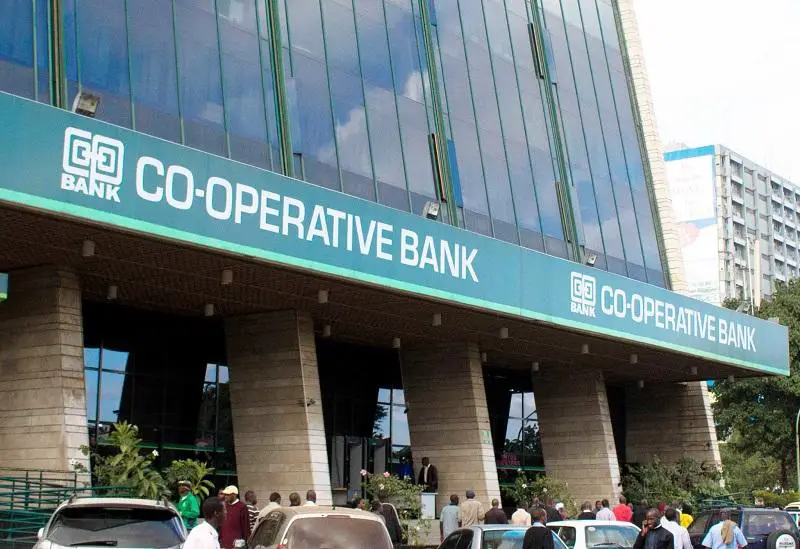- The $100 million loan has been disbursed for onward lending.
- Coop Bank CEO says the funding “is most timely in view of the great need to better support our business customers.”
- The long-term tenure of the facility has significantly boosted Coop Bank’s ability to offer credit to SMEs.
The Co-operative Bank of Kenya has received a long-term seven-year funding amounting to $100 million from a consortium of financial institutions to empower Kenyan SMEs.
SMEs are a major source of employment in Kenya, providing jobs to a large number of people, especially in rural areas. They absorb a significant percentage of the labor force, thereby reducing the burden on the formal job market.
With a strong focus on climate and impact, the consortium lead DEG offers financing, advice and support to private sector enterprises operating in developing and emerging-market countries.
Loan to empower Kenyan SMEs
The loan is a Tier II Facility is already been disbursed, where DEG acted as lender, mandated lead arranger and facility agent. DEG, Deutsche Investitions- und Entwicklungsgesellschaft, is part of KfW Group and is headquartered in Cologne, Germany.
As an experienced partner, it supports customers with in-depth market knowledge, impact and climate expertise and its international network to advance forward-looking investments.
The Consortium also included the Africa Agriculture and Trade Investment Fund (AATIF), Micro Small Medium Enterprises Bonds (MSMEB) and European Development Finance Institutions namely Finnfund, Norfund and the co-financing facility European Financing Partners (EFP).
Commenting upon the disbursement of the facility, Co-op Bank Group Managing Director and CEO Gideon Muriuki said: “The funding by DEG and the Consortium is most timely in view of the great need to better support our business customers. ”
In addition, the long-term tenure of the facility has significantly boosted the bank’s ability to offer solutions that are better structured to fulfil the long-term financing needs of MSMEs, Dr Muriuki added.
Monika Beck, Member of DEG’s Management Board said: “By acting as lead arranger and providing the subordinated loan to Co-op Bank, DEG contributes to the further development of Kenya’s financial sector and the wider economy through the creation of jobs and local income, all geared towards the attainment of Sustainability Development Goals.”
Co-op Bank strategy
Co-op Bank continues to leverage its strong balance sheet to access funding and allied partnerships with global development partners. This strategy aims at enhancing the bank’s opportunities for performance, and growth.
The lender is enhancing it’s assets and liabilities to ensure long-term loans can be financed using long-term debt. Diversifying the bank’s asset and funding portfolio, expanding the client base especially among MSMEs also remain a key focus. Coop Bank is equally boosting its competitive position through affordable lending.
The DEG-led facility is a significant support to the bank especially now when the bank’s digitization is on full steam. Coop Bank deployed a $50 million new, robust core banking system in June 2023.
Co-op Bank Group is incorporated in Kenya under the Company’s Act and carries out services under the Banking Act. The bank was listed in 2008 wherein it is now the largest Co-operative Bank in Africa.
The Group has five subsidiaries namely, Kingdom Securities Ltd, Co-optrust Investment Services Limited, Co-op Consultancy and Bancassurance Intermediary Ltd. Kingdom Bank Limited and Co-operative Bank of South Sudan are also part of its stable.
The bank holds a 24.8 per cent stake in CIC Insurance Group. Coop Bank also owns a 25 per cent equity stake in Co-op Bank Fleet Africa Leasing Limited. It has footprint across the region including 183 branches in Kenya and four in South Sudan.
The Africa Agriculture and Trade Investment Fund is a public-private partnership organisation. It is dedicated to promoting sustainable development of the food, agri-sector across Africa. It provides capital and technical assistance by sharing lessons learned with the international development finance community for replication.
The fund provides debt financing to small, medium, and large-scale agribusinesses in the agriculture value chain. It also targets financial institutions that are active in the sector.
Private sector in developing countries
Finnfund is a Finnish development financier and impact investor. It is keen on building a sustainable future and generate lasting impact by investing in businesses. It primarily targets businesses that seek to solve global development challenges.
“We invest 200–250 million euros in 20–30 companies in developing countries each year. Our focus sectors include renewable energy, sustainable forestry, sustainable agriculture, financial institutions, and digital infrastructure and solutions,” it notes.
Norfund on the other hand is a Norwegian Investment Fund for developing countries. Its mission is to create jobs and to improve lives by investing in businesses that drive sustainable development.
The Norwegian Government owns and funds Norfund. It is the government’s most important tool for strengthening the private sector in developing countries.
Norfund’s committed portfolio totals $3.1 billion in Sub-Saharan Africa, South-East Asia, and Central America. It has four investment areas which are renewable energy, financial inclusion, scalable enterprises and green infrastructure.
SMEs play a crucial role in Kenya’s economy. These businesses are characterized by their relatively small size and often have limited resources and workforce. SMEs in Kenya operate across various sectors, contributing significantly to economic growth, job creation, and poverty reduction.
